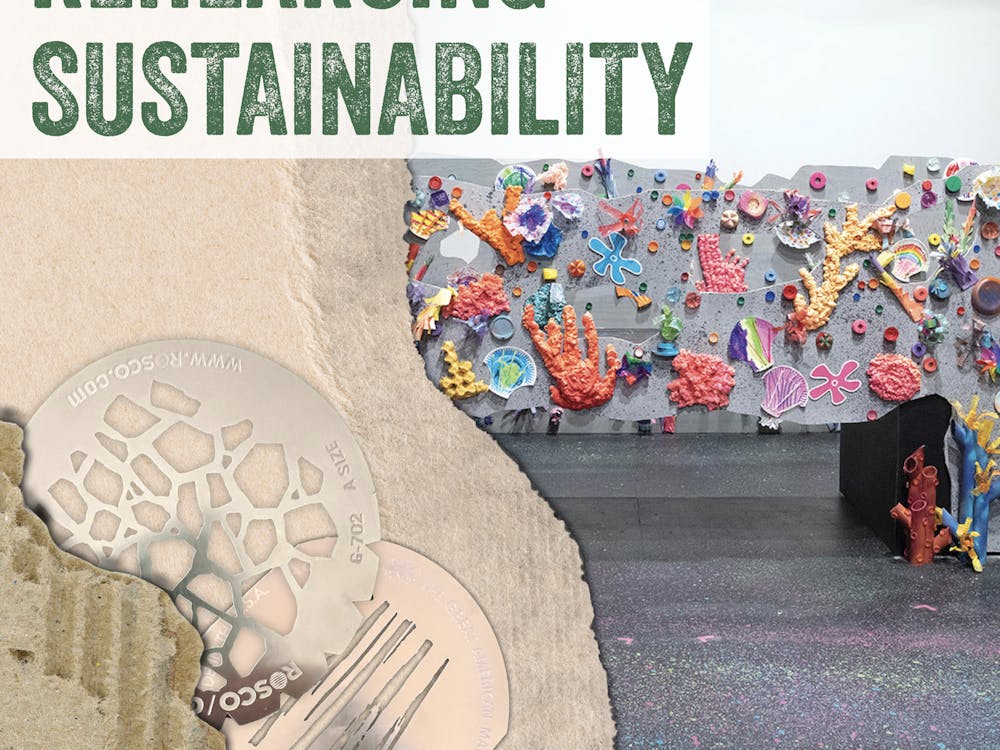Levi Todd is a junior English major and writes 'Leave it to Levi' for the Daily News. His views do not necessarily agree with those of the newspaper. Write to Levi at lctodd@bsu.edu.
 |
|---|
This past Friday, Ball State awoke to find “RESIST” painted in bold, stark white on five different brick walls around campus. The symbolism was glaring — just as Trump’s major campaign promise was building a wall at the USA-Mexico border, the mysterious painter also chose to post their message to various brick buildings across campus. I parked my bike near the Whisper Wall before my class on Friday, and started beaming upon seeing the encouragement to resist the Trump administration and its threats to numerous communities.
Let’s get a few things clear: yes, the vandalism was in violation of Ball State’s university policy. Yes, it was illegal. To be honest, I’m sure the painter will be discovered in a few days and disciplined accordingly. And I’m sure they knew that going in — that level of awareness and commitment is something I admire, and of course I expect the university to act accordingly. That’s how civil disobedience works.
Because that’s what it is — civil disobedience is defined by Merriam Webster as “refusal to obey governmental demands or commands especially as a nonviolent and usually collective means of forcing concessions from the government.” That sounds a lot like how Americans in the Boston Tea Party dumped British tea into the harbor — that was also a destruction of property. However, it symbolically represented an opposition to an unjust representation of the American people, and motivated a large body of people to fight against oppressive circumstances. I was taught to praise the Boston Tea Party’s significance since the third grade as a revolutionary act in the fight for American independence, and maybe the mysterious painter was, too.
Here’s what it comes down to: I have heard more clamor and appall over paint on a wall than I have about the thousands of refugees and American citizens that were unlawfully detained a few weeks ago, or the fact that transgender students now have to fear using public restrooms and attending school, or the fact that Trump banned The New York Times, CNN and other major news organizations from his latest press briefing or the fact that he called for a National Guard invasion of Chicago. If you value a brick wall more than you do human life and liberties, then that’s a larger conversation we need to have.
And I know what you’re thinking: why couldn’t the artist just have protested peacefully? Because they succeeded in starting a conversation we needed to have. The majority of Ball State has mastered the art of ignoring anything political. The outcry I’ve heard today is vastly larger than after any peaceful protest on campus. The artist wanted to get every person who claims to be “apolitical” to start talking, and they did.
So I’ll leave you with this. If you oppose the painted messages on campus, ask yourself if you’re just as outraged by the unlawful and discriminatory legislation the Trump administration is pursuing, and remember that every significant movement we now respect (the American Revolution, the Civil Rights Movement, the Women’s Suffrage Movement, etc.) utilized civil disobedience and was regarded as criminal at the time.
And if you appreciated the call to step up — then do. Use 5calls.org to call your local senators and reps and demand that they take action. Keep showing up to local demonstrations and protests. Donate to the ACLU and other legal defense funds to take unconstitutional legislation to court. Keep calling out your family and friends on their discriminatory language or defense of Trump’s actions. Remember that your children thirty years from now will ask what you did during this historic point in time. Make sure you’re able to tell them you resisted.





